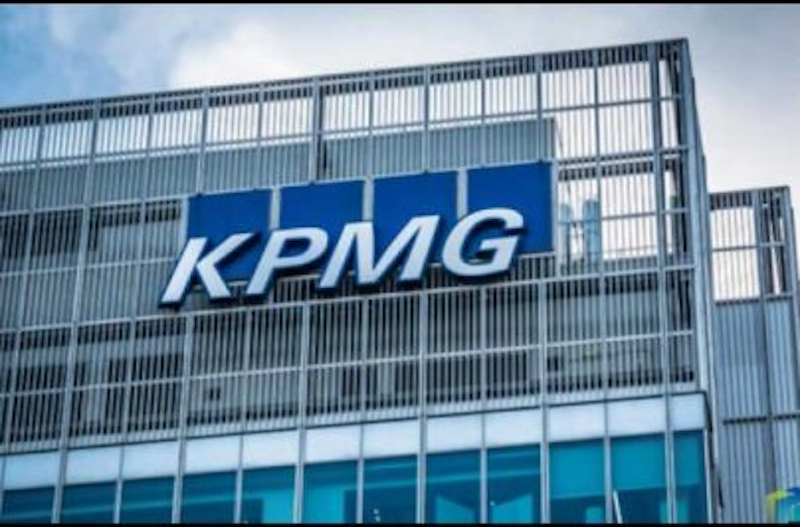
The Partner in charge of Energy and Natural Resources at the KPMG Professional Services, Mr. Ayo Salami, has said that the oil blocks recently advertised by the Nigerian Upstream Petroleum Regulatory Commission (NUPRC), should be attractive to investors.
Salami told THISDAY in a phone chat that the Deep Offshore blocks would attract interests from local and foreign businessmen because of their low tax obligation, in addition to the absence of security risks such as theft and vandalism that are associated with onshore assets.
He explained that under the Petroleum Industry Act (PIA), Deep Offshore fields were very lucrative because the tax rate is 30 per cent, stressing that the fiscals of the assets remain competitive enough to attract any potential foreign investment.
NUPRC Chief Executive Officer, Mr. Gbenga Komolafe had in December, 2022 announced the beginning of the 2022/2023 mini bid round for seven Deep Offshore blocks otherwise called Petroleum Prospecting Licences (PPLs).
The deep offshore blocks include PPL-300-DO, PPL-301-DO, PPL-302-DO, PPL-303-DO, PPL-304-DO, PPL-305-DO and PPL-306-DO.
The blocks covering an area of approximately 6,700 square kilometres in water depths ranging from 1,150metres to 3,100metres, are located outside the coast of Lagos.
Komolafe had announced during the pre-bid round conference in Lagos in January that winners of the mini-bid for deep offshore licensing round would be announced in the next four months, revealing that a renowned global firm, Wood Mackenzie had been contracted as the consultant for the mini-bid.
However, responding to the question on whether or not the assets would attract competent investors, Salami said: “For me, I will like to answer this question from two perspectives. One is, what is already on ground that needs to be evaluated and what can the government do more?
“In terms of what is already on ground, I think what we have currently can enhance and attract foreign investors. And why I am saying so? I’ve said earlier on that under the PIA, Deep Offshore fields are very lucrative because the tax rate is just 30 per cent. Beyond that, is also the fact that they are disaffected by the issue of oil theft.
“If you also take a look at the assets that have been divested by the international oil companies (IOCs) to date, they are all mostly onshore assets and the reasons are clear: oil theft, community issues and the rest.
“So, for me, two factors: the fiscals, I believe, are very competitive and then, they are not faced by security issues, by oil theft issue. So, that is already on ground and I think it should attract any potential foreign investment,” he noted.
On what government can do to to make the bidding process credible and to also further enhance the interest of foreign participants, he opined that government should make the process transparent and less difficult.
Noting that the PIA was clear on the process to follow, Salami advised that government should work as the PIA has stipulated, adding that it should use the bid round to tell the world that Nigeria can do the right thing.
“So, with that in place and with the fiscals already in place, the risk of oil theft, security remote or non existent, I think they (investors) will come because fossil fuel will still play an important part in the energy mix in the next 30 years. So, whether the discovery is going to be only oil or gas, or both, it is attractive, and I think foreign investors will come,” he added.
Also commenting on how the NNPC Limited can become more commercially viable, profitable and more competitive like its peers across the globe, Salami said having succeeded in incorporating the company under the Companies and Allied Matters Act (CAMA), rather than under a special legislation, it should pull through other features of a conventional limited liability company as it already has a board in place.
“The board must be impartial, must be transparent with what they do and the rest. So, the next step for me will be to then put in place a robust corporate governance framework that will guide the board members in their activities and follow through,” he stressed.
He further explained: “Now, having done that, we would then ask ourselves: under the PIA, are there landmines that can thwart all these efforts? And I think the answer is yes. There is a provision in the PIA right now that says, NNPC will be the supplier of last resort of petroleum products in the country.” He added: “That provision alone is a headache, because what it means is that, as we have fuel scarcity now, government can call NNPC Limited to make sure that there is abundant supply of fuel at whatever cost. Which means, we might indirectly, through the backdoor, come back to fuel subsidy. The same fuel subsidy that PIA has come to abolish.
source: https://www.thisdaylive.com/
